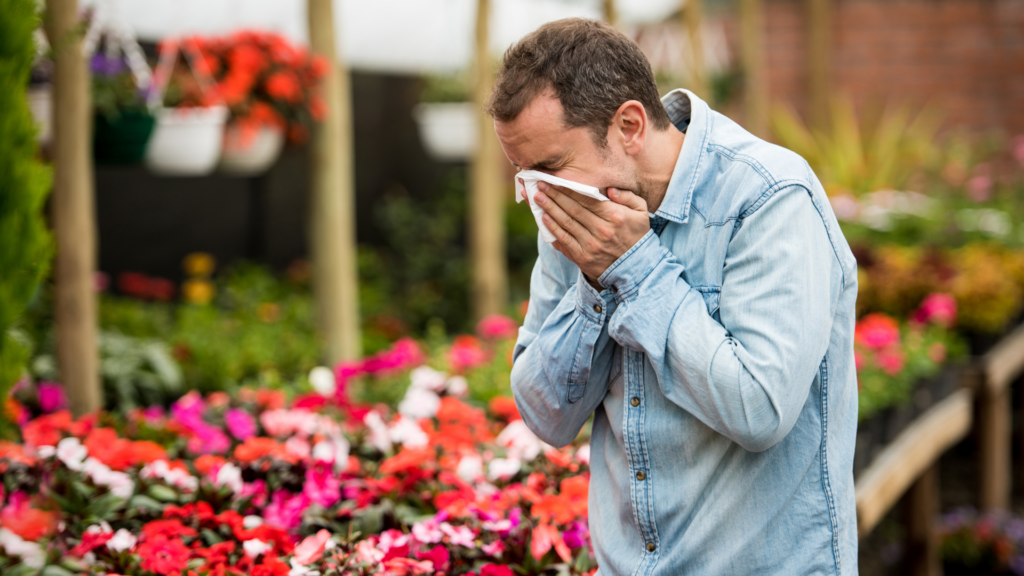Though it officially ended on Wednesday when temperatures dropped below 25°C, Belgium’s latest heatwave continues to have an effect – particularly on those with hay fever and asthma.
In normal circumstances, the arrival of rain tends to reduce the amount of pollen – the main antagonist in hay fever – in the air. But if pollen levels are high enough, rainfall can actually exacerbate the situation, causing the pollen to break up into smaller particles, which are more numerous but still able to antagonise the systems of sufferers.
The phenomenon is little-known in Belgium to date, though it has been observed in places like Australia, where weather conditions can be less moderate, according to Professor Guy Brusselle, a lung specialist at the University of Ghent.
“In Belgium and in the rest of Europe, we are increasingly faced with periods of great heat due to global warming. These are followed by severe thunderstorms,” he told De Morgen. “We can therefore expect that thunderstorm asthma will occur more frequently here during pollen season."
The asthma attacks were first described in Australia in 2016, when around 2,000 people were treated in the state of Victoria, with 30 people landing in intensive care, and three fatalities. To date, no such serious cases have been reported in Belgium.
Related News
- Storm and strong winds hit Corsica, at least three dead
- Controlled blackouts: France braces for winter electricity shortage
- Wine production: Could Belgium become the new Bordeaux?
“Normally, the pollen only penetrates the upper respiratory tract,” Professor Brusselle said. “Then we get hay fever. But when pollen concentrations are higher – as can be the case during a thunderstorm after a sweltering period – they also penetrate the lower respiratory tract. In that case, we have asthma."
"It is true that in Australia a number of people have not survived the attack of thunderstorm asthma, but that is a large country where the distance to emergency services and GPs is much greater than here."
Nonetheless, the phenomenon exists here, and on current trends is likely to occur more often.
The professor offers some general advice: “People with a pollen allergy should of course refrain from major efforts if a heavy thunderstorm breaks out after a period of great heat. But if they do suffer from shortness of breath and cough, they can go to their GP or a lung specialist for excellent medication. In case of an acute asthma attack, they have to go to the emergency room.”

